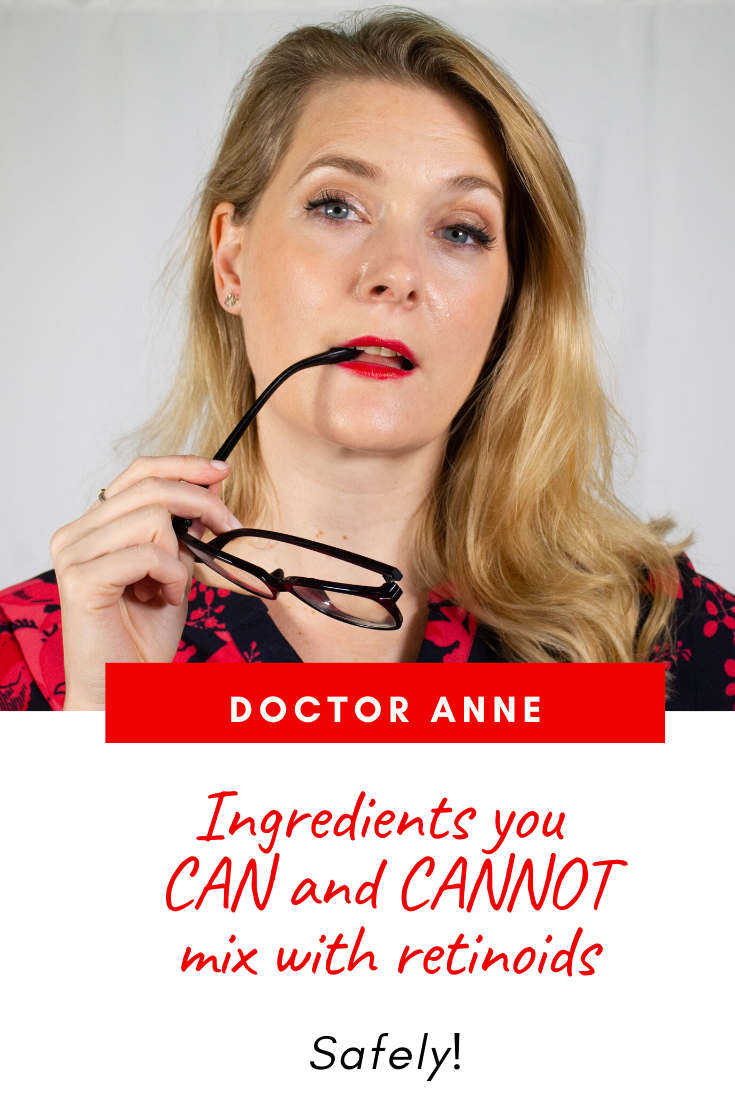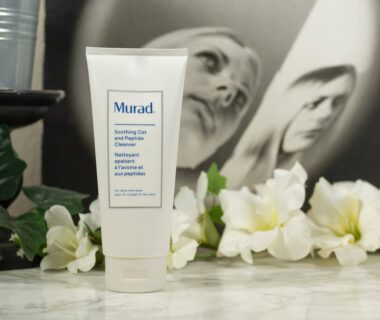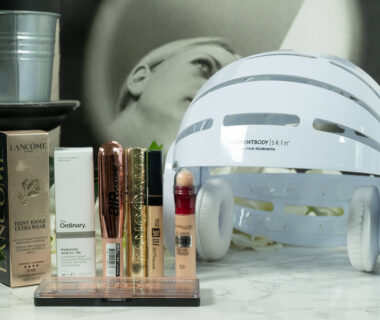This is part 2 of a three part series, so here is a little introduction to the topic and a link to the other parts:
There are a few questions I get over and over in the comments of my videos, so instead of answering them only individually, I figured I would use them for a new series – #AskDoctorAnne. Which sounds pretty catchy if I dare say so myself. And the first topic I wanted to address is: Combining skincare ingredients.
Are there ones that you should never combine? Some that actually enhance each other? Does that depend on strength, concentration or time of the day?

It is actually a bunch of questions rather than one, which is why this is going to be a three part series:
- Combining skincare ingredients the right way (read here)
- Combining Retinol with other ingredients like Vitamin C, AHA or BHA (today)
- Combining Vitamin C with other ingredients like Niacinamide or Acids (coming next week)
Different forms of Retinoids
To really understand what we can and can not combine Retinol with, it is important to note that Retinol is often used when actually talking about Retinoids. Retinoids are the whole family, while Retinol is a prominent family member. I realize that this would be a great time to put in a Kardashian analogy, but I really have no clue who is who in that family.
If you want to learn more about the difference, I have a blog post dedicated to that topic here, but in short:
– Retinylpalmitate, Retinol and Retinaldehyde are available over the counter and can be mixed with other active ingredients under certain circumstances
– Adapalene is available over the counter in a few countries and prescription in others, but can also be mixed with other active ingredients under certain circumstances
– Tretinoin or Retinoic Acid is prescription only and should not be mixed with other active ingredients without consulting your doctor
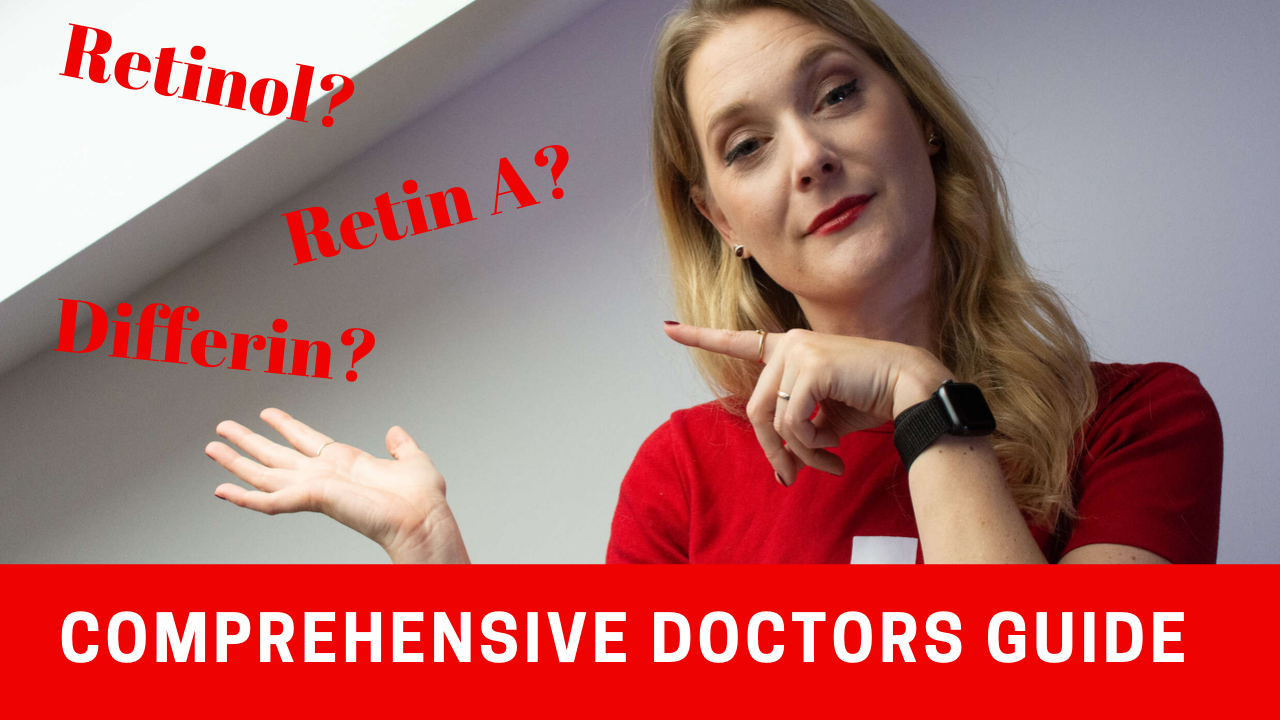
Can I combine retinoids with AHA/BHA?
Yes.
BUT! I wouldn’t recommend you do.
Not because acids tend to have a lower pH and retinoids prefer a more neutral one, but because combining the two really increases the risk of irritation.
Are there benefits of using the two together? Yes. You will get results faster, probably see a benefit in hyperpigmentation, but for me the increased risk of irritation is absolutely not worth it.
I recommend you pick a suitable strength of retinoid, build up your tolerance to it (read here how) and then see if you do still need an acid. If you do, use it once a week on a night when you don’t use your retinoid, your skin will be much happier that way.
Can I combine Retinoids with Vitamin C?
Yes.
BUT! Again, I really don’t think you need to.
I use Vitamin C in the morning and Retinoids at night, that way they never interfere. Depending on the type of Vitamin C you use that might be different.
Ascorbic Acid has some irritating potential on its own, both because of its structure and because of its need for a low pH, so using it in the same routine as retinoids will again increase the risk of irritation and adverse reaction.
If you are not using Ascorbic Acid, but a derivate (read more about the different types here), you have a lesser risk of irritation and usually a neutral pH, so you can mix to your hearts desire, although I still would use my Vitamin C in the mornings.
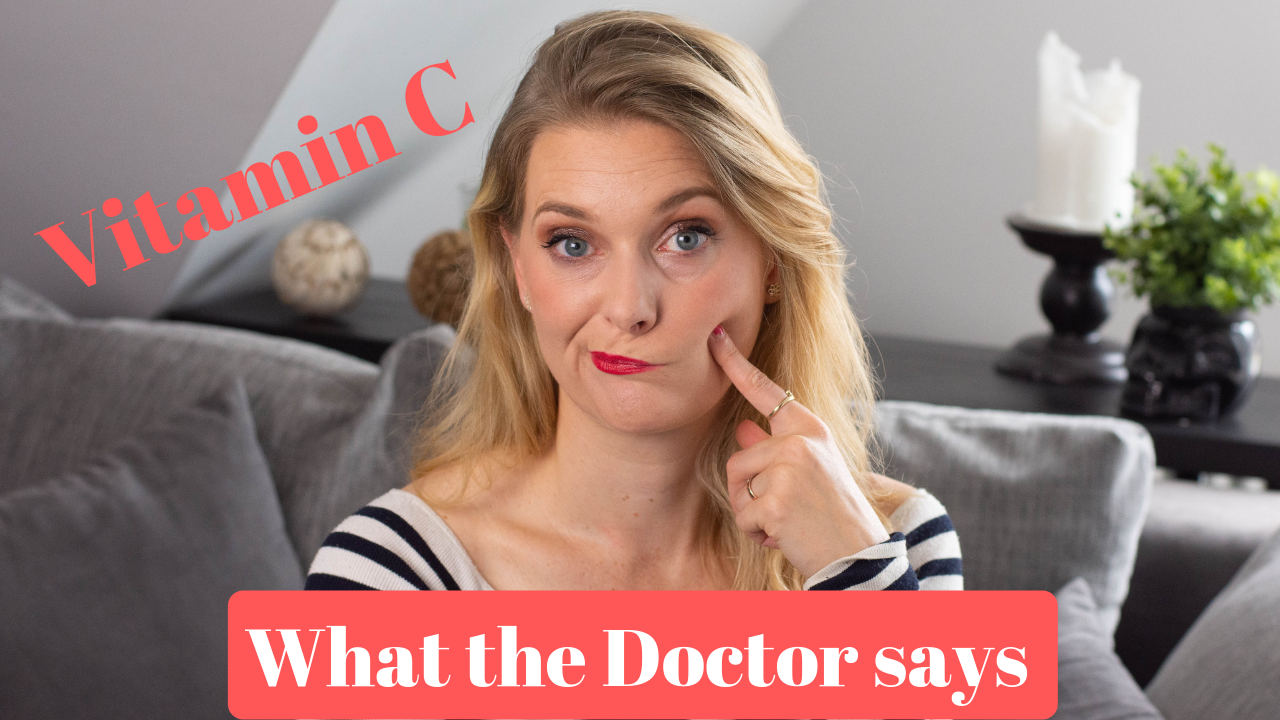
Can I combine Retinoids with Niacinamide?
Yes.
And not only can you, but you should! Niacinamide has shown to increase the skins tolerance against retinoids, which means you can use a higher strength quicker and with less irritation.
Win-win!
Can I combine Retinoids with Hydroquinone?
Maybe, but never on your own.
Hydroquinone is a very effective treatment for hyperpigmentation and melasma, and it is safe to use under the supervision of a professional. The last part of the sentence is key here: Hydroquinone can have some serious side effects, and the risk of these increases when paired with other actives.
That doesn’t mean you can’t use them together, but only as advised by your professional – don’t pair your prescription with over the counter medication on your own!
Can I combine Retinoids with Benzoyl peroxide?
Yes and no.
Benzoyl peroxide works by oxidizing, retinoids have antioxidant activity, so they cancel each other out. The retinoid activity we look for though is not mainly the antioxidant effect, so that wouldn’t be that much of an issue, but Benzoyl peroxide is very drying and irritating. Pair that with Retinoids, also drying and irritating, and you set yourself up for adverse reactions.
As for Differin, which is available over the counter in the US now and combines Adapalene and Benzoylperoxide in one formula: Adapalene is less reactive and less irritating than the original retinoids, but you still get more irritation from the combination than you would get from Adapalene alone.
So again, you CAN pair Benzoyl Peroxide with over the counter retinoids and Adapalene, but keep i mind that this increases your risk for irritation.

Can I combine Retinoids with Peptides and Ceramides?
Yes.
Both are safe to use with retinoids, and in case of ceramides might even help reduce irritation by repairing the skins barrier. I personally use my peptides in the mornings as part of my humectant serum, but that is purely out of convenience. (And should you want to learn more about peptides, this video explains them in depth).
I hope that answered all your questions. If not, make sure to ask in the comments below!
